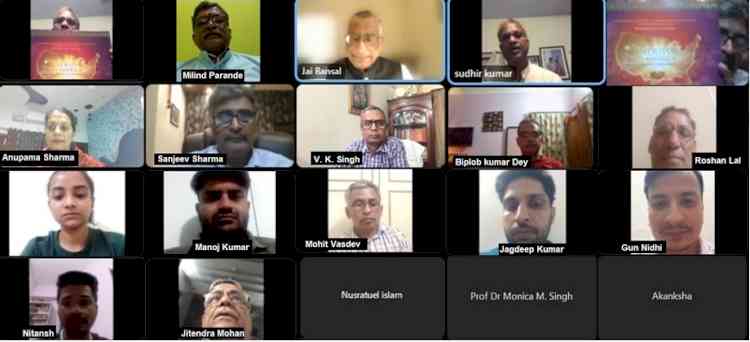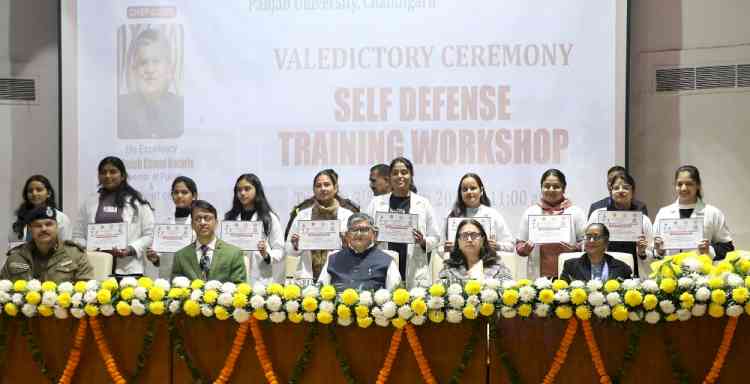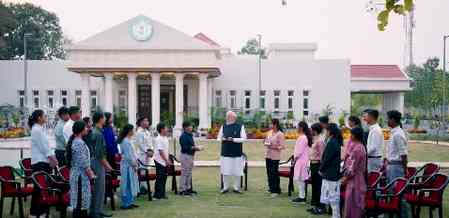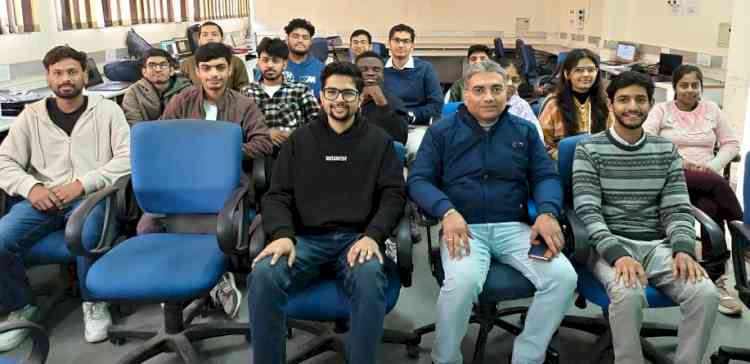Need to sensitise about rich Indian traditions and value systems
The influence of ancient Indian traditions and value systems on the contemporary scenario needs to be properly understood and appreciated.

Chandigarh, March 24, 2022: The influence of ancient Indian traditions and value systems on the contemporary scenario needs to be properly understood and appreciated. We need to share a comprehensive and unbiased perspective of different elements of Indian civilisation to our younger generation. “World needs to fully comprehend how apparent diversity in Indian civilisation is supported by a unified thought system with shared values and perspectives”. These observations were made by Prof Sudhir Kumar, Dean Research, Panjab University in his presidential address on the webinar "Revisiting our civilisation history and why it matters" organised by Panjab University Alumni Association (PUAA) and Interdisciplinary Centre for Swami Vivekananda Studies (ICSVS) on March 22, 2022.
Releasing the book authored by Dr Jai G. Bansal, An illustrious Alumnus of Chemical Engineering Panjab University and former Chief Scientific Officer, Global Petrochemical giant and Advisor to Argonne National Laboratory, Chicago and US Department of Energy, Prof Sudhir Kumar appreciated the efforts of the author to highlight the salient contributions of Indians in America in an absorbing manner. He acknowledged the benevolence of Dr Bansal for choosing the platform of his alma mater to formally release his book. This book outlines salient events and personalities, documenting contributions of Indian civilisation in an alien land.
The Distinguished Speaker, Dr Jai G. Bansal enumerated how many of the foundations of modern society –be it in science, medicine, mathematics, metaphysics, religion and astronomy originated in India. India's literary, artistic and philosophical contributions to the world are far greater than those of any other civilization in history. We need to take pride in our rich legacy. The foundations of core values and belief systems have been prime drivers behind success of Indians in the US.
In his powerful presentation, Dr. Bansal shared tremendous accolades on Indian civilisation by celebrated European intellectuals to highlight that India was much advanced in ancient times in education and economy. Up to the 17th century, the wealth in India was more than twice that of the rest of the world combined. However, periodic invasions and systematic ruining of Indian education system by the Britishers, led to a narrative of India being regressive, superstitious, backward etc.
The transmission of Vedic wisdom from India to America has been going on for over 200 years, through a variety of means. As its teachings are universal, they have been embraced by those with secular and scientific outlooks as well as spiritual seekers.
The guest of Honour, Shri Milind Parande, a social reformer and a philosopher- thinker of repute shared his views on Indian spiritualism. He highlighted that Indian civilization has exhibited dynamism, tenacity, resilience and has tremendous ability to auto-correct. Indian value systems have stood the test of time.
We need to be vigilant as many forces may aim towards destabilisation fearing India emerging as a global player “”Vishv Guru”. We also have to safeguard against our value styems becoming diluted, corrupted or distorted.
Shri Milind made an impassioned plea to rise again and produce knowledge inspired by the enabling Vedanta vision, the knowledge that not only compares and rationalizes, but empowers the mind to play active role in society to shape it. We need to imbibe Dharma and assimilate its core beliefs.
The learned speaker opined that the Indian spirit doesn't insist on uniformity but focuses on oneness. According to him, a sense of gratitude, interdependence and oneness are three cardinal principles of Indian civilisation. He highlighted that Dharma and Religion cannot be compared as religion is a far narrower term. The concept of dharma is subtle within Indian thought and includes ethical behavior towards others at every level: social, cosmic order, sense of duty, service to the community, self-expression, and as a means for mokṣha. He emphasised that we need to create more new institutions to implement new ideas. Today's era is the most favourable time despite of all challenges.
His highly enriching and impactful discourse was armed by the ancient knowledge and received tremendous applause from the participants.
The event was organised as part of Azaadi ka Amrit Mahotsav. The webinar had enthusiastic participation of more than 200 academicians and alumni.



 cityairnews
cityairnews 










